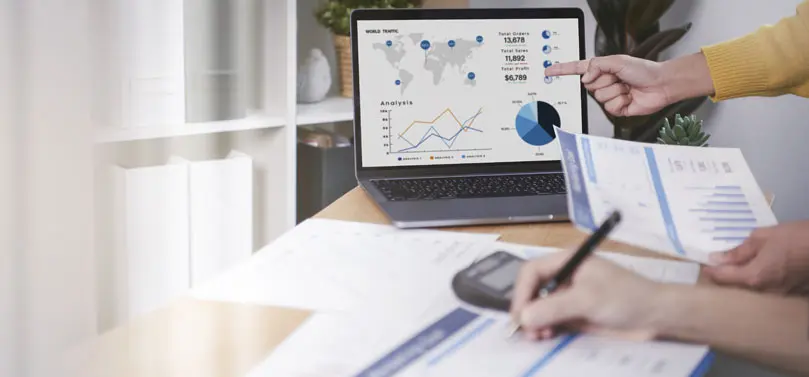Headline-induced price swings suggest that investors are making investment decisions driven by hopes and fears, and possibly based on limited information.
As hundreds of companies race to develop vaccines and drug therapies that could help end the COVID-19 pandemic, news reports on successful or failed trials affect individual stock prices and can trigger swings in the broader market. Understandably, this highly contagious virus — and its severe economic repercussions — has a knack for stirring up investors’ emotions.
By late May, COVID-19 was responsible for more than 100,000 deaths in the United States and about 355,000 worldwide. Investors are human beings first, and most of us are waiting anxiously for a cure that would stop the suffering and allow normal life to resume.
Governments and nonprofits have provided billions of dollars in support, and some red tape has been loosened, all to help speed a costly, complex, and time-consuming drug development process. Even so, this influx of public funding — along with a concerted humanitarian effort — suggests that some of the most important discoveries may not generate profits for investors.
High hopes for a vaccine
A vaccine prepares the body’s immune system to recognize and resist a specific disease, preventing it from causing sickness and spreading to others. As of May 27, the World Health Organization (WHO) was tracking 125 experimental vaccine candidates globally, 10 of which had advanced to clinical evaluation. Another 115 candidates are still in the pre-clinical stage, which involves testing in cells and/or animals and waiting for regulators to review results and grant permission for human trials.
Clinical studies are conducted in three phases. During Phase I, a small study of healthy people tests the safety and immune response of the vaccine at different doses. Phase II is a randomized, double-blind, controlled study of hundreds of people that further assesses safety, efficacy, and optimal dosing. If all goes well, clinical studies expand to include thousands of people in Phase III. These larger studies can be challenging because they test how well the vaccine works in an environment where the virus is spreading.
Despite the urgency, COVID-19 vaccine candidates can’t skip any of these crucial steps, but timelines have been accelerated. Health officials have said it could take 12 to 18 months before a vaccine may be available.
The U.S. government has struck supply deals with several pharmaceutical companies to support research into leading vaccine candidates and boost the manufacturing capacity needed to produce 300 million doses by fall of 2020, should a candidate prove effective.
Other nations and well-funded nonprofits have made similar deals. Massive public investment allows drug makers to get a head start on manufacturing doses while waiting for human trials to conclude and approval to be granted. In return, at least one drug maker has promised to sell an approved vaccine without making a profit during the pandemic.
A COVID-19 vaccine is not imminent — a point made by the fact that there is no vaccine to prevent HIV after several decades of research. Still, early progress on several fronts offers reasons to be cautiously optimistic.
Testing old and new therapies
The development and approval process for experimental drugs is similar to the one for vaccines. Companies that develop successful treatments are likely to face the same manufacturing challenges and pricing pressures. In the meantime, doctors are testing existing therapies that might help COVID-19 patients.
One existing antiviral drug was approved for emergency use by the U.S. Food and Drug Administration after it was determined to help hospitalized patients with severe COVID-19 recover faster. The pharmaceutical giant that makes the drug has ramped up production and is donating about 1.5 million doses as a public good.
Scientists are also working on targeted antibody therapies, which depend on the identification of specific antibodies that bind with and neutralize the novel coronavirus. At high doses the right antibodies might prevent the disease from worsening in hospitalized patients, and at lower doses the same antibodies could provide short-term immunity for front-line workers.
Effective antibody drugs are easier to develop but more complex to manufacture. Thus, there is limited global capacity to produce the large amounts needed. Governments, nonprofits, and companies that are normally competitors are reportedly discussing ways to share manufacturing plants if one company’s antibody proves to work better than the others.
Antibody treatments could help save lives as long as COVID-19 is a threat, but widespread vaccination could make them obsolete. If a successful vaccine materializes, many valiant efforts to develop beneficial therapies may never make much money.
More implications for investors
By the end of May, the U.S. government had invested at least $2 billion for the development of coronavirus vaccines and $300 million for antiviral and antibody therapies. New biotechnologies, generous financial support, and unprecedented cooperation between governments and industry leaders could shave several years off typical development timelines.
It’s rarely easy to predict which new products will perform well enough in multiple rounds of studies to earn regulatory approval. Moreover, the stock market’s mid-May rally and high valuations for biotech and pharmaceutical shares imply that success in developing COVID-19 treatments might already be priced in.
Headline-induced price swings suggest that investors are making decisions driven by hopes and fears, and possibly based on limited information, instead of a realistic assessment of an investment’s longer-term earnings potential. Now more than ever, it’s important to have a well-researched investment strategy based on your own goals, time horizon, and risk tolerance.
All investing involves risk, including the possible loss of principal, and there is no guarantee that any investment strategy will be successful.




